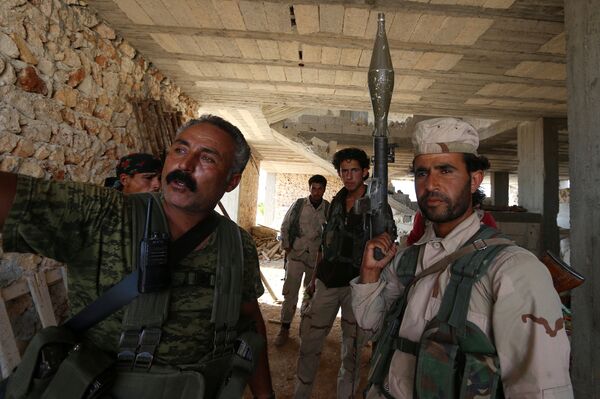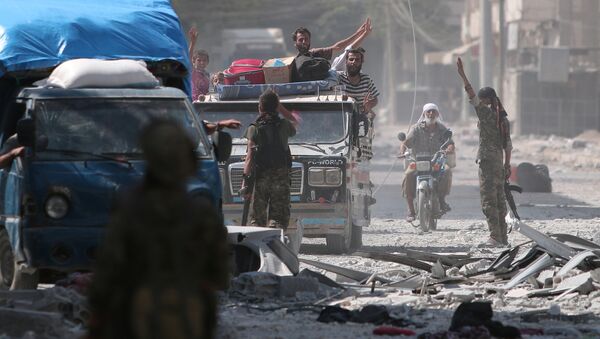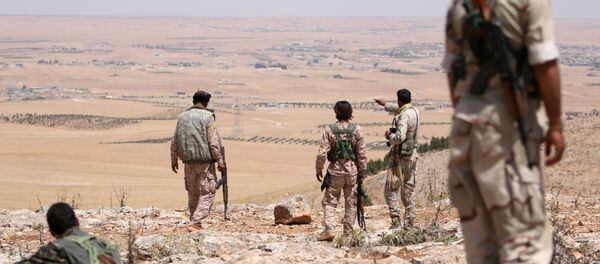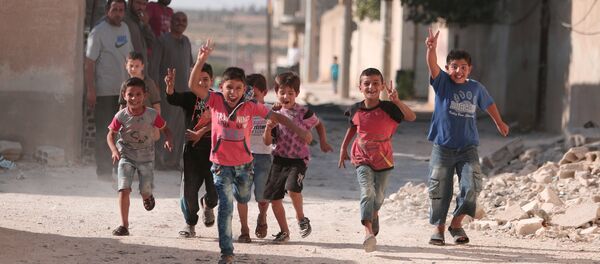"The SDF's primary goal involves sealing the border. We will make every effort to cut Daesh's 'air supply' by preventing them from smuggling fighters and weapons from Turkey. When we succeed in pushing the terrorists out of al-Bab – and this should not take much time – the SDF will be able to advance further west to the city of Afrin," he explained.
The cities of al-Bab and Afrin are located in the Aleppo province along the 60-mile corridor that Turkish authorities have long promised to seal. Daesh took al-Bab under full control in November 2013, while Afrin has remained under Kurdish control during the Syrian conflict.

The SDF announced that the city al-Bab is their next target on Sunday, two days after they pushed Daesh out of Manbij, a strategically important border city also located in the Aleppo province. Approximately 12,000 fighters took part in the operation that was launched on May 31.
Abd Salam Muhammad Ali emphasized that Kurdish fighters do not intend to clash with the SAA that managed to cut all supply routes to the rebel-held areas in Aleppo last month.
Senior research fellow at the Center for Arab and Islamic Studies at the Institute of Oriental Studies Boris Dolgov maintained that the SDF's offensive in northern Syria is aimed at expanding the de facto autonomous region of Rojava.
"The Kurds are openly saying that they intend to create an autonomous region," he said. "At the same time, the Syrian leadership criticized the Kurds for their plans, saying that all similar issues must be resolved according to the constitution."
Abd Salam Muhammad Ali appears to have indirectly mentioned the issue when he said that SDF victories in northern Syria will help the Kurds gain additional leverage during the talks on the country's political future.
In March 2016, the Kurds announced that they established a federal system of government in Rojava, a region that comprises three self-governing areas, including the province of al-Hasakah, as well as part of al-Raqqa and Aleppo.




